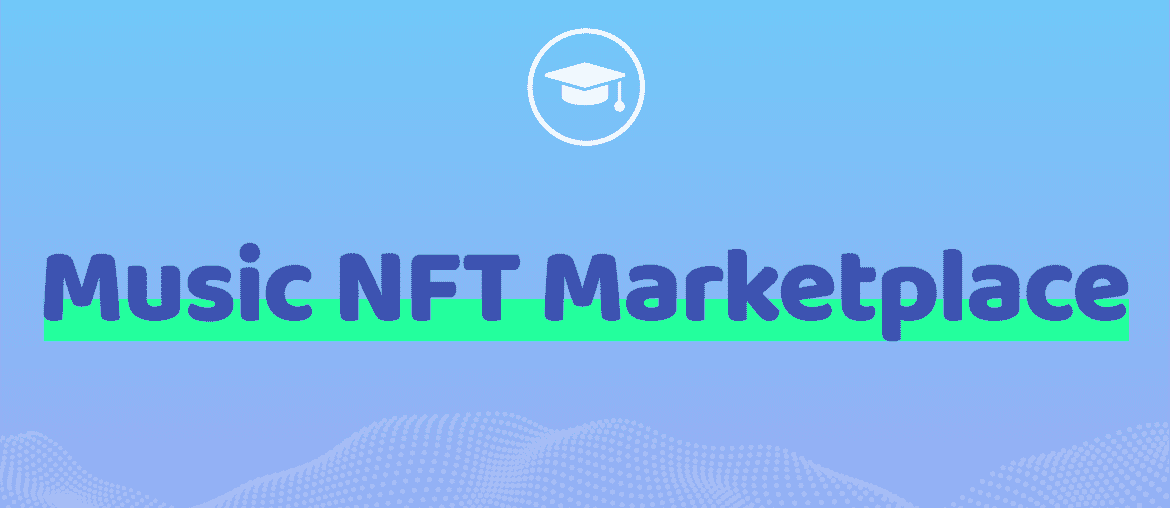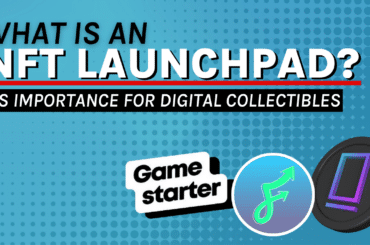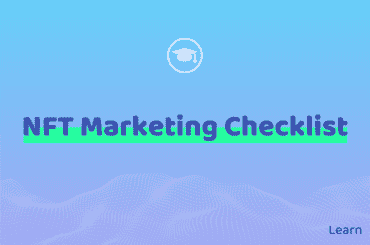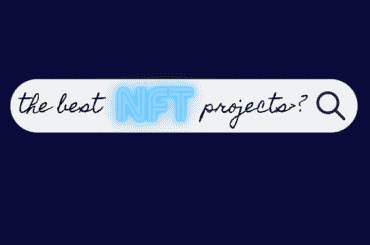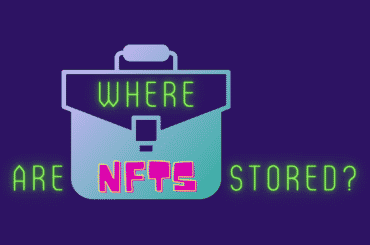NFTs, or non-fungible tokens, have taken the global market by storm. From selling digitized cats to taking in cash for the very first Tweet, these versatile tokens of trade have many uses. Music is just one of the many types of digital assets represented in this digital art wave, helping artists earn money for their creations, not to mention giving fans a new way to enjoy supporting them.
We’ll break down some of the most popular marketplaces for the NFTs of the musical variety, and share the ins and outs of how the music industry has been flipped on its head with the new opportunities offered by an NFT music marketplace.
Table of Contents
A New Music Industry
As technology continues to change, so too does the music industry as a whole. Fans of various tunes and artists have gone along for the ride for decades now, and the trends started well before the dawning of the worldwide web.
Depending on your age, you can likely date yourself by the first music collection you owned. Did you buy LPs? Were you an avid collector of eight tracks? Maybe you ripped that Columbia House ad out of a magazine and got your free cassette tapes.
Wherever you jumped into the scene, the music industry has always adapted to the “hot new thing,” making sure its artists and bands were up with the times.
Taking Music Online
There are some generations that jumped in mid-stream as the globe, not to mention the world of music, was catching onto the latest and greatest called the Internet. A major challenge was placed on its hands when the music industry had to face a robust online world, ripe for stealing, copying, and sharing music.
Ain’t Nothing for Free
While the avenues opened up musical access to nearly anyone with a web connection, it also was doing so without bringing in revenue. Music distribution sites like Napster put a bad taste in musicians’ mouths as their hard work went unpaid. The term .mp3 became a curse word of sorts, denoting a technology that was robbing them of their paychecks.
This wasn’t the only industry impacted this way (see also newspapers), but it did mean that music labels and independent artists alike would have to find a way to turn this tech into dollar signs, and fast.
A New Revenue Stream
While it took years, the industry didn’t take the new changes laying down. Instead, it fought back, taking major companies like Napster to task in the courtroom. Musicians should be paid. They work hard on their art and deserve to be paid as such.
Luckily, the courts agreed, and after years of battles, such major companies were shut down or forced to change into fairly paid, and royalty distributive, models that once again earned the creators of music fair pay.
A Digital Art Is Born
Long before digital assets, marketplaces, and NFTs, the music industry found a way to make money on the world wide web. They converted what started out as a massive theft of the trade, and shaped it into the moneymaking jackpot of today.
Yes, it took hard work, a lot of court cases, and a lot more lawyers, but eventually, the musicians took lemons and truly made some epic lemonade.
The Versatile NFT
In more recent years, there has been a new booming technology online: the creation of cryptocurrency, tokens, and the notorious NFT. The dawning of this new era has brought along with it advancements such as blockchain technology, which once again has turned the world of music artists into the makers of a creative economy.
What’s an NFT?
If you aren’t familiar yet with the language, an NFT is a non-fungible token. In simple terms, it is a representative of something of value (in that it is a token), and it is irreplaceable. Non-fungible simply means that it has no equal. There is no precise item of identical worth.
Such tokens have, since said creation, taken off in an ever-changing and -advancing world known as the NFT marketplace. NFT marketplaces were created to allow users to buy, sell, and trade such tokens in a wide variety of ways.
Music NFTs
While the artistic space jumped in on the NFT bandwagon rather quickly, the tokens largely represented digital art such as programmed digitized images of cats, monkeys, or even more bizarre a digital asset, such as the first Tweet of a Twitter founder.
In its earliest versions, NFTs represented digital art. They could be anything digital, from .mp4 files, to .gifs, .jpgs, to, yes, even .mp3s. The NFT was created with the use of blockchain technology, meaning that, unlike sites like Napster, which created a wild west of lawless trading and sharing, there was built-in security this time.
The Blockchain Technology
A blockchain allowed for the verification, authenticity, and security of digital files. No longer would ownership be unclear. A blockchain, in its simplest terms, is a distributed digital ledger. This creates a peer-to-peer network in which single, immutable, and indisputable ownership can be locked in and backed up.
Using a series of complicated computations, the blocks in the chain are decentralized in that there is no overseeing authority, such as a bank or government controlling the system. While that may first appear to be a detriment to an anonymous and free system, it turns out it is a benefit.
Peers are able to verify transactions on the chain, meaning there is an entire network of validators. The ownership of an NFT is not only secured by this tech but it also creates an entirely new way of doing business.
A New Marketplace
With these technologies in place, a new trading market opened up, and music was not to be left behind. While digital collectibles became the latest craze in investing, so too did the music industry jump on board.
The public is going to own music. They will seek ways to do so. And, no matter its form, they will find a way to get it done. Enter the latest of those ways, the music NFT marketplace.
NFT Music Marketplace
In no way to be left out of the latest craze, those that create music didn’t waste time jumping into NFTs and what it could mean for the space. As late as November of 2021, the first marketplaces exclusively dedicated to the buying, selling, and trading of music NFTs were formed.
Loud Market Ltd.
On Nov. 24, 2021, the very first marketplace create exclusively for the buying and selling of music as crypto-assets were established through a space called Loud Market Ltd. This organization aims to bottle the magic that NFTs have brought to the artistic world and create an entirely new revenue stream and marketplace for music.
The site itself claims to “empower artists by easily allowing them to sell their work directly to fans by converting music into liquid, tradable assets.” Aiming its tech at both those that create music, as well as those that sell NFTs, sites like these will continue to be on the rise.
Air Music NFT Marketplace
Another popular marketplace setting its sights on the music industry is AirNFTs. This organization will jump into the scene, not only making music NFTs available but also a space for musical videos.
For costs as low as $1, artists can mint NFTs on this site, providing themselves an NFT market for a low cost. Its goal is to allow musicians access to fans, cutting out the middleman. The blockchain technology mentioned earlier is the vehicle on which they’ll ride.
Musical artists today still do not make massive dollar signs because of distributed music. Services dubbed digital streaming platforms (think Pandora, Spotify, etc.) allow music to spread to the masses, but do little to bring a paycheck to today’s artists.
Instead, musicians rely on revenue streams such as concert sales, product promotions, partnerships, and merch sales to cash in on their work. With AirNFTs, the company is hoping to revamp this struggle. Allowing users to own NFTs created by their favorite artists creates an NFT space where, not only can fans enjoy immutable, undeniable, publicly verified ownership over its investments, but also where artists can directly profit.
Mainstream Markets Add Music
While there are now spaces designed exclusively to focus on the music industry, there are still dedicated departments in some of the well-known NFT marketplaces where fans can find musical talents. Sites like OpenSea, for example, are well known for a vast and varied platform of NFT exchanges.
This site, too, offers musical NFTs, with artists such as The Weeknd, Richie Hawtin, and RAC, just to name a few, getting into the art form. Platforms continue to grow as big names jump on board, brightening the future of such tech.
Major Benefits to the Industry
The world of music has seen many an adaptation. And, it is likely not at its end. With the dawn of musical NFT marketplaces, an artist has the opportunity to benefit in many ways. Some of those perks will include:
- A Low Barrier for Entry: New artists can create songs and unique NFTs as easily as established counterparts
- Low Cost to Play: With a song NFT being minted as low as $1, the price to get into the industry is lowered
- Ownership: Both artists and fans will be able to easily and definitively prove ownership over NFTs
- The Missing Middleman: Songwriters can prove talent without the use of producers or investors
- A Greater Ability: No longer will a budding musician need to find a studio or recording space, granting access to millions
This technology is just getting started, yet the benefits seem nearly endless. There is an entirely new world waiting to unfold with the dawn of this marketplace concept, and plenty of tools will soon be in the hands of the masses.
A Bright Future
The exchange of digital items was a concept that didn’t exist a handful of years prior. It is an industry in its infancy and is changing and growing each and every day. The idea of digital goods is now converting into a creative economy all on its own.
Strong Goals
With its eyes on getting more dollars into musicians’ pockets, the creation of music NFTs have provided an entirely new way of thinking about music sales. Along with it comes a new set of goals that an NFT can provide for those that create.
New Revenue Streams
For example, if two owners want to outbid one another for a popular NFT, if bands release limited editions, or if royalties can be tied via a smart contract to a piece, granting payment to the artist no matter how many times a piece is bought or sold, these are all entirely new ways in which musicians can make money.
Less Loss to Middlemen
Without having to give so much back to a platform, the artist will pocket far more revenue directly. Additionally, eliminating the need for costly labels, producers, or investors, again the artist stands to benefit.
Cutting out these extra steps not only streamlines the process of releasing music to the fanbase but also cuts down the costs. Music is delivered more quickly to the audience, and far less money is wasted along the way.
An Increased Authenticity
For those creating music, another perk of the NFT music space is the benefits they feel while creating. Many other artists have confessed to “selling out” to a label, trying to meet unrealistic deadlines or produce pieces they are not proud of to make a producer happy.
With these steps eliminated, there is an increase in authentic music that those that create it can be proud of every step of the way. The use of an NFT does not exclude any genres. It allows for versatility, not to mention a direct way to start selling when the artist is ready.
Where are Music NFTs Headed?
The future is ours to see, and no one knows precisely where it is headed. One thing is for sure, however, in the world of music, the NFT is yet another gamechanger. Any artist can now dive into an NFT project, from famed names long-living in the musical space to budding artists hoping to break into the scene, there is room for everyone in this new venture.
Lower costs and less red tape is making the tech accessible to the masses, meaning nearly anyone can quickly and easily create an entire NFT showroom with the touch of a button and some Internet access.
Keep informed of these changes and advancements with FLOLiO, where we aim to provide informative and researched resources to help you stay on top of the ever-changing world of crypto and its tech.

